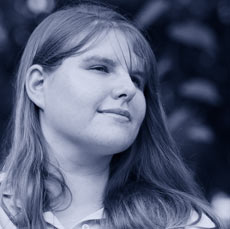|
  October 21, 2010— NATIONAL REPORT— Technology in general has become a major fact of life for many travelers. From smart phones to laptops and tablets, and eBook readers to gaming devices, hotel guests have many demanding technology needs.
October 21, 2010— NATIONAL REPORT— Technology in general has become a major fact of life for many travelers. From smart phones to laptops and tablets, and eBook readers to gaming devices, hotel guests have many demanding technology needs.
This is especially true for Generation Y, which is defined as those born after 1980 by the U.S. Travel Association. This generation has grown up with technology as an essential part of their daily routine, and for 2010, the association estimates that this generation will make up 12% of all leisure travel and 13% of business travel. And that number is growing as more of them join the workforce and take on higher-level positions.
There is one ubiquitous bit of technology found in every guestroom worldwide that is garnering a bit of attention lately: the clock radio. There are two schools of thought about the clock radio. On the one hand, many brands are now offering units that serve as docking stations for mobile devices like smart phones and iPods, while others are taking a more scaled-back approach, slimming down the clock to its most basic functions.
For the docking station side of the equation, Homewood Suites by Hilton's vice president of brand performance, Dawn Koenig, weighed in. "For guests, this further allows them to personalize their stay, which is extremely critical for extended stay brands due to the length of time they are away from their own home."
Koenig further noted that guests appreciate the ability to charge their mobile devices off of the clock radio, especially when a cable or adapter was left behind or lost in transit. "Our guests like to have choice and appreciate that we offer them the flexibility."
Taking the side of the more simplistic approach to clock radios is Starwood's Aloft Hotels' senior vice president Brian McGuinness. "Our research has found that even the most tech savvy guest tends not to use the typical in-room alarm-radio. Our guests generally prefer the podcast on their iPod rather than listening to the radio, and with all of their personal gadgets have no use for the sometimes complicated hotel clock radio."
To that end, Aloft is offering a streamlined unit in their rooms that does only two things, according to McGuinness: tell the time and wake guests up. "Our guests are loving the clocks we offer … they are functional and there is no confusion or learning curve."
Both brands noted that technology in all parts of the hotel, clock radios included, is always up for re-evaluation. Both have teams in place who monitor guest trends and feedback to ensure the technology plan meets and exceeds expectations at all levels. "We have a team in place with Hilton Worldwide whose sole focus is on innovation in the areas of technology which would include the clock radio needs of the future," said Koenig.
McGuinness concurred, noting, "We are always looking to innovate and constantly adapting to new technologies and guest feedback.
As guests, particularly our tech savvy demographic, rely increasingly on their smart phones for many of their day to day needs, we may rethink the need for the in-room clock."
|


